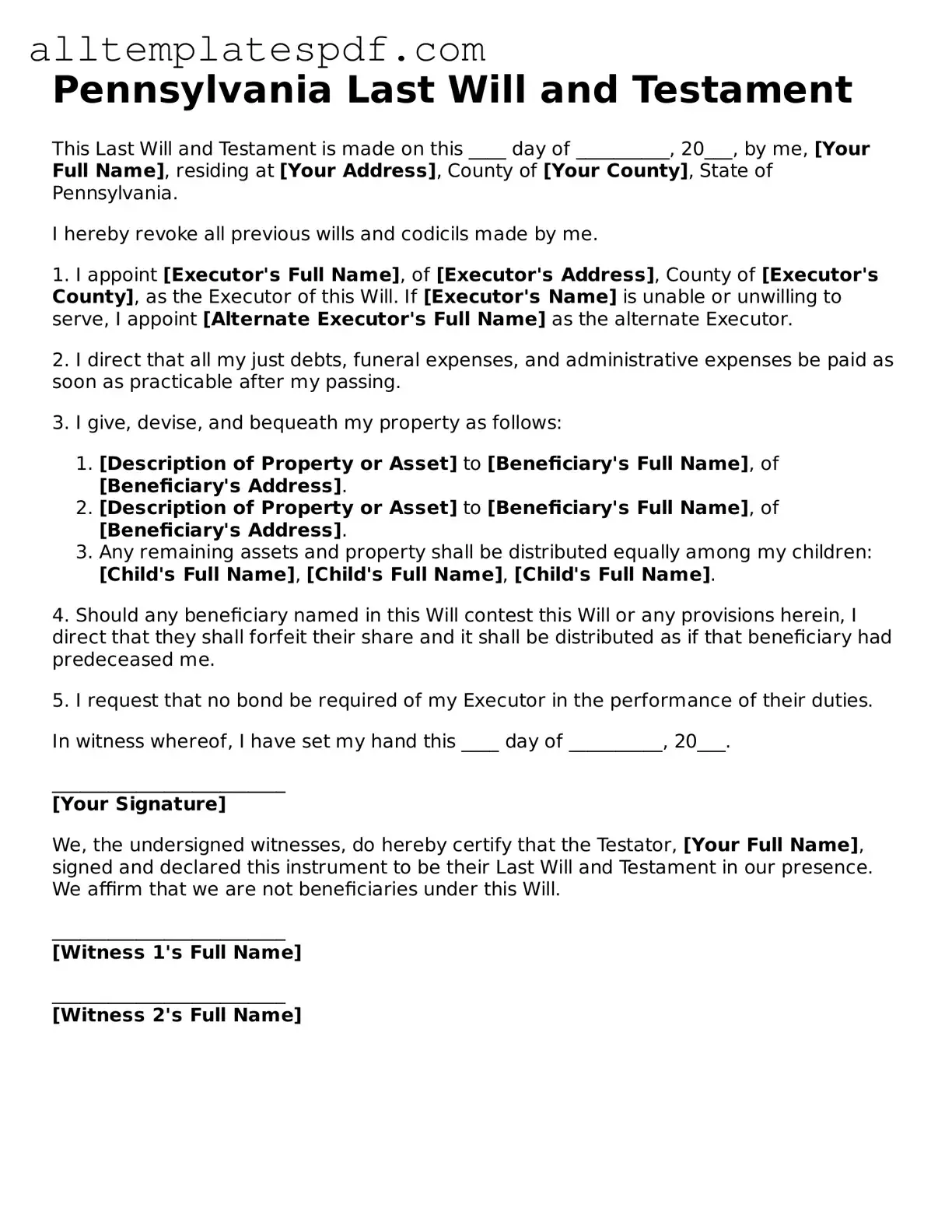Blank Last Will and Testament Template for the State of Pennsylvania
The Last Will and Testament form in Pennsylvania serves as a legal document that outlines an individual's wishes regarding the distribution of their assets after their passing. This essential tool ensures that your intentions are honored and can help prevent disputes among heirs. To take the first step in securing your legacy, consider filling out the form by clicking the button below.
Open Editor

Blank Last Will and Testament Template for the State of Pennsylvania
Open Editor
Fast and easy form completion
Complete Last Will and Testament digitally — fast and easy.
Open Editor
or
↓ Last Will and Testament PDF Form
